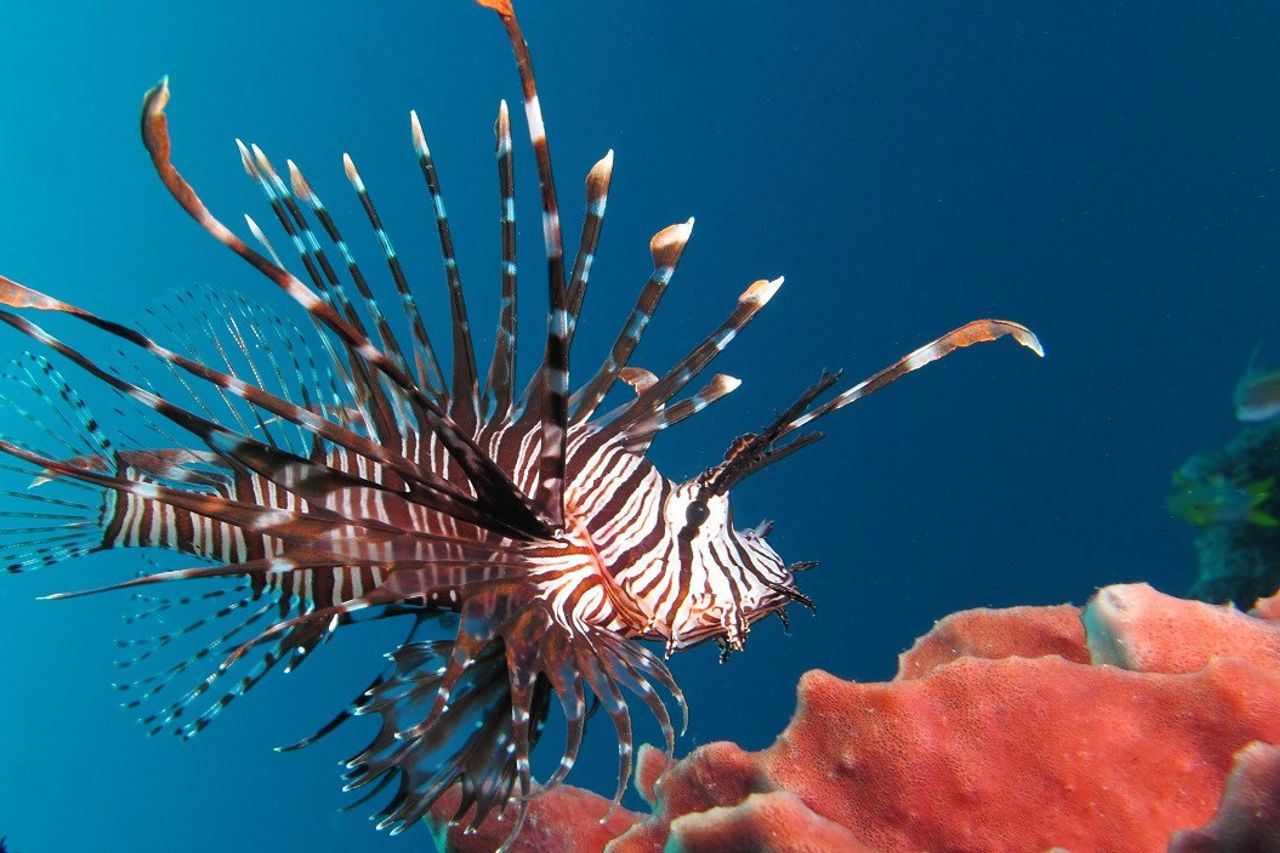Lionfish Invasion In Aegean Sea Makes Turkish Scientists Worried

JAKARTA - The lionfish, a venomous species that fascinates people unfamiliar with its bright color and distinct fins, is emerging as a new threat in Turkey's Aegean Sea, experts warn.
An invasive fish native to the Red Sea, and although harmless to humans, it preys on the small fish that the Aegean houses. This is likely to disrupt ecosystems if not contained, maritime scientists say.
Like other invasive species, these fish swap their habitat for Turkish waters due to the climate crisis which provides suitable conditions for alien species in their habitat.
In fact, lionfish are known to first 'plunge' into the Mediterranean Sea in the early 1990s via the Suez Canal. Since 2012, it has been more common on the Aegean coast, especially off Izmir, Turkey's largest province along the coast.
Hamdullah Aras, a professional diver at Karaburun Izmir, said they were finding lionfish more frequently and their population was concentrated off the coast of the Seferihisar district.
"(The fish) is not venomous unless you touch it. It has long been popular with underwater photographers, because of its colorful body and we even have people specially come here to take photos of the lionfish," he told Anadolu Agency, as quoted Daily Sabah October 25.

Meanwhile, Professor Murat Bilecenoğlu, a hydrobiologist from Adnan Menderes University said the first sightings of lionfish occurred off the coast of Iskenderun in southern Turkey and in less than five years became common along the Izmir coast.
Bilecenoğlu says lionfish are very resistant to water temperature and salinity, allowing them to thrive easily. He explained that the scientific community was worried about his progress throughout the Aegean Sea.
"As long as the Suez Canal is open, we will see more invasive species here," he explained. Bilecenoğlu added that lionfish pose a threat especially to fish that live near the coast, "its main food."
SEE ALSO:
Separately, Professor Okan Akyol of Ege University told AA that the blackish grouper and white grouper are among the main predators of lionfish, but their numbers have declined in Turkish waters due to overfishing.
"The group is included in the fishing ban, but illegal fishing threatens them," he lamented. Akyol said lionfish are used as seafood and campaigns to promote their consumption could help in eradicating them.

